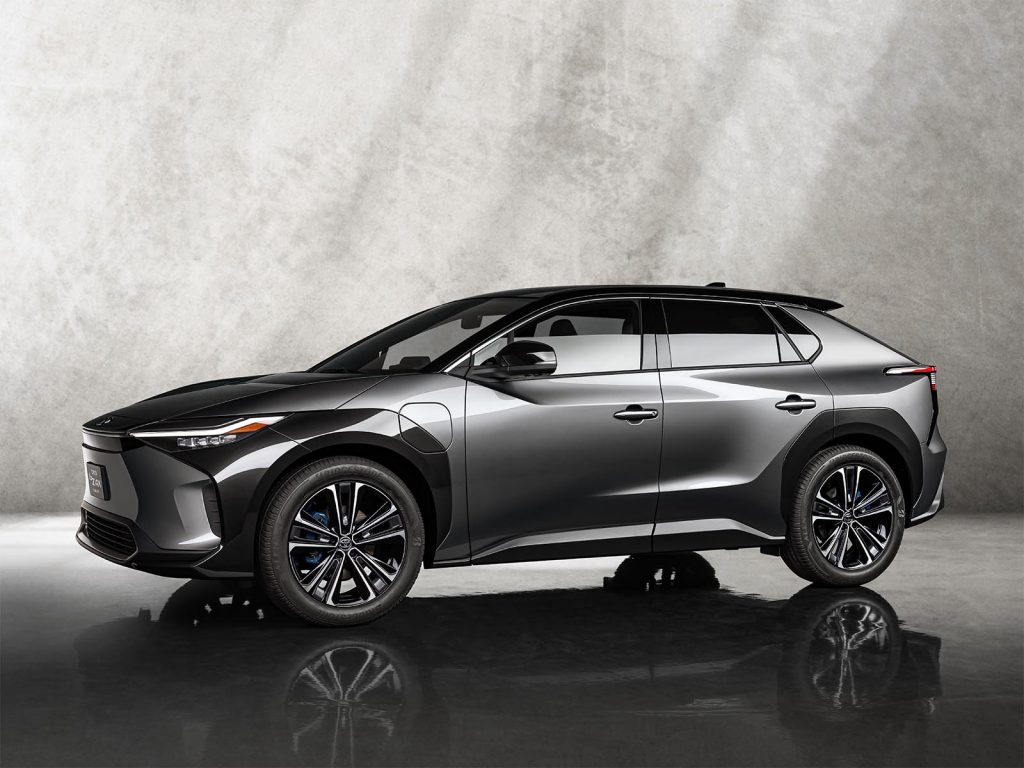As the first company to put a hybrid-electric vehicle into production, Toyota built up a reputation as one of the industry’s most green-minded manufacturers. But that reputation has come into question in the last several years as company officials, including President and CEO Akio Toyota, have openly expressed concerns about pure battery-electric vehicles.

It didn’t help when Toyoda, the grandson of the automaker’s founder, late last year tried to convince the Japanese government not to approve plans that would phase out internal combustion engine vehicles. And Toyota came under sharp criticism for backing former President Donald Trump’s plan to strip California of authority to enact strict new emissions standards that would have accelerated the switch to battery power.
Clearly worried it might no longer be seen as “environmentally friendly,” Toyota officials spent plenty of time laying out their plans for hybrids, plug-ins and, yes, pure battery-electric models during a four-day media event at the company’s U.S. headquarters near Dallas. The event included the debut of the bZ4X Concept, a production version of the all-electric SUV due to reach American showrooms later this year.
“We are not anti-BEV. We want BEVs to succeed,” said Chris Reynolds, chief administrative officer for Toyota Motor North America.
Automaker reasserts support for BEVs
It was a message repeated over and over during the four-day session. But, so were the concerns that Reynolds cited, such as the limited range, the higher cost, and the lack of a battery charging infrastructure that Toyota officials said they see as limiting potential demand for plug-based products, pure BEVs, in particular.
“We’re not anti-EV,” echoed Bob Carter, TMNA’s executive vice president of sales, as the bZ4X made its North American debut following a global preview at the Shanghai Auto Show in April.
The bZ is short for “Beyond Zero,” a new sub-brand that eventually will feature seven pure BEVs. The carmaker also plans to offer eight other all-electric models through its Toyota and Lexus brands.
That would mark a significant jump considering it doesn’t offer a single battery-electric vehicle in either the U.S. or China, with just one going into Europe. But, even then, Toyota’s plans are modest when compared to key competitors like General Motors, which expects to have 30 on sale — double the Toyota corporate total — by 2025. By then, Volkswagen expects to be selling 50 BEVs through its various brands, with the Bentley division selling only all-electric vehicles by 2030.
Electrification doesn’t mean just battery powered
The three automakers actually have a similar vision, with Carter forecasting the industry is on a path towards an “all-electric future.” Where they differ is in the type of electric vehicles they expect consumers to want.
Toyota, for its part, has promised to offer some form of battery drive for virtually all of its products by mid-decade. But it believes that conventional hybrids will dominate consumer demand well into the future. So, while all the various forms of “electrified” products should account for 70% of its U.S. sales by 2030, TMNA Group Vice President Lisa Materazzo forecast that BEVs alone will account for a relatively meager 15% of the company’s American volume.
“The (charging) infrastructure needs to be there and it isn’t,” said Materazzo, adding that this “is one of the reasons we’re taking this portfolio approach.”
Reticence reaps rebukes
Not everyone buys Toyota’s argument. The automaker has taken some big hits for its cautious attitude on BEVs. A number of environmental groups called the company out when it initially sided with the Trump administration’s push to strip California’s ability to set strict automotive carbon emissions standards — though Toyota officials insist they simply want to see a single national emissions mandate.
The criticism intensified when CEO Toyoda called BEVs overhyped and, last December, laid out a variety of complaints made under his role as chairman of the Japan Automobile Manufacturers Association. “The more EVs we build, the worse carbon dioxide gets,” he declared, “When politicians are out there saying, ‘Let’s get rid of all cars using gasoline,’ do they understand this?” Toyota went on to warn that a switch to all-electric power would cause “the current business of the car industry … to collapse.”
It was clear, from the comments made by Toyota officials in Dallas that they’d like to have the 64-year-old CEO’s comments stricken from the record.
Toyota’s lack of a U.S. battery-electric vehicle hasn’t been a real problem, said Sam Abuelsamid, principal automotive analyst with Guidehouse Insights. But the company “can no longer sit back and wait.” It has to “get into the market now,” he added.
Whether its still-cautious approach will work remains unclear, and could very well depend on regulators, as much as consumers. More and more countries, including Norway and the U.K., are setting guidelines calling for the phaseout of gas and diesel vehicles. If anything, Toyota is now “well prepared to shift wherever the market goes” — or where it might be forced to move by pro-BEV regulators, said Materzzo.







